Senior Continuum of Care

If you are visiting this page, you likely desire an independent senior living community with many amenities and hospitality services to enjoy with like-minded seniors, but are also curious how to best manage your aging in place over time.
You might be more familiar with the term Continuing Care Communities (CCC), defined as those with the opportunity to increase the intensity of healthcare from independent living through skilled nursing, within one single residence. The senior housing industry has recently rebranded such communities, however, as Life Plan Communities to move away from the idea of senior housing as health care, especially when so many folks living into their 90’s and 100’s don’t know if/when they’ll need personal care and/or health services. Think about it, are you clear whether you would require assisted living over time? Do you know it’s meaning?

We, at RosePointe, work to make RosePointe a forever home for residents by offering independent home care (non-medical) or home health care (Medical) agency services to our residents through a program called , “Optimizing Aging in Place.” Aging in Place is a phrase used to describe a person living in the residence of their choice, for as long as they are able, as they age. This includes having services (or other support) available over time as needs change.
Since 2018, our resident/leadership-driven initiative called “Optimizing Aging in Place” has facilitated the development of educational programming, resource partnerships, and service deliverables that take into consideration the existing health care priorities of residents today and those anticipated in the future. Outcomes have been far-reaching and include:
- A partnership with Comfort Keepers (a national provider of in-home senior care) to provide 7-day per week windows of care spread out across participating residents. Residents know to reach out for a consultation and establish a private pay contract, if agreed upon. The contract requires one hour per week per client at a very affordable rate and can be terminated at any time. Of course, residents can secure care services from any number of in-home care agencies, but this partnership serves the quality and affordability factor in a unique way.
- “Driving your Well-being” education on topics related to “Life’s Intersections” such as Being Mortal, Loss of Dreams & Rebuilding of Dreams, Grief & Hope, Hospice & Palliative Care.
- The Introduction of the GrandPad Senior communication technology to improve resident social outreach and engagement by simplifying smartphone-like communications and application use.
- A working relationship with a prominent MN-based health care system that provides social working expertise and resource direction over the phone, in-person, and online to help caregivers along their journey caring for a loved one.
- Education on in-home INR lab testing so residents can eliminate the need for repetitive outbound clinic visits.
- Partnerships with neighboring senior living facilities to share occupancy data, best practices and care delivery choices for residents and families who may require transitional care or advanced assisted living and memory care services.
- A brochure rack of in-house hospitality, home health care, medical supply, housing identification and moving company services to support ever-changing needs.
RosePointe’s Optimizing Aging in Place initiative has delivered a best practice model to our community without in-house continuum of care services and has allayed resident fears regarding the need to move in the event of an acute or chronic health condition. As a result, our residents are more knowledgeable about aging well, securing resources, and happily sustaining long-term tenancy.

Shattered Dreams do not always mean a loss forever. Trainer Ted Bowman (left photo) visited RosePointe December 2019, continuing the informational series “Optimizing Aging in Place”. His session emphasized loss and rebuilding on personal dreams we may once have had. Should we stop dreaming? “No”, he advises, rather we should “adjust in the transition of change and be resilient;” factors that promote resiliency include support groups. “We do better when supported by others,” he said. Bowman is author of “Loss of Dreams—a special kind of Grief.” and “Finding Hope when Dreams are Shattered.”
